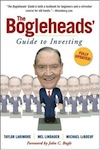How to Start Saving for Retirement + Why You Need to Start a Roth IRA Today
Planning and saving for your future retirement doesn’t need to be complicated or overwhelming. You will need to spend time setting it up, making your contributions automatic, and then making slight adjustments once a year, but it isn’t rocket science to start building your retirement fund. That being said, when you are just getting started with your first job after college or have decided to start saving for retirement, there are a lot of options to choose from.
On this exact topic, I got an email yesterday from a client I am coaching:
“So Roth IRA before stocks, bonds, mutual funds? What makes Roth IRA the best option? Which pre-tax retirement account? I'm an independent consultant can I still purchase a 401k, 403b, or regular IRA?
Feeling a little overwhelmed with all these options...”
There are some really important questions to answer in there, so let’s tackle them all one at a time.
What Retirement Account Should I Invest in First?
Common theory is that you should invest in your retirement accounts following this order.
- 401(k)/403(b)/Simple IRA until you max your company match.
- Then into a Roth IRA until you max it. ($5,000/year in 2011)
- Then continue investing in your 401(k)/403(b)/Simple IRA until you reach the annual contribution limit. ($16,500/year for 401(k)/403(b)’s & $11,500/year for Simple IRA’s)
- If you want to save beyond this level, keep your money in a regular, non-retirement, investment account to invest in stocks, bonds, mutual funds, etc.
Do I Invest Pre-Tax or Post-Tax Dollars for Retirement?
In your retirement accounts other than your Roth IRA (which has to be post tax contributions), you should be investing pre-tax dollars. The reason for this is that the amount you should earn in interest while investing pre-tax dollars should be more than you will have earned with post-tax contributions. Another reason is that you may be charged taxes at a lower rate in retirement than the rate you are taxed at when you earn the money.
This is a bit complicated to explain, so check out this article from Ameriprise if you want to read more on this.
What Makes a Roth IRA a Good Investment for 20 Somethings?
The biggest perk of a Roth IRA is that since you pay taxes on your income before you invest, you don’t need to pay taxes on withdrawals when you retire (after 59 ½). This includes contributions AND interest earnings. When you have thirty or forty years for your investment to earn compound interest, your earnings can far outweigh your contributions, especially in the last few years.
This is what makes Roth IRA’s so attractive to young adults and why you should open one today if you haven’t yet done so. I house mine at Vanguard. For a more detailed explanation for how to start a Roth IRA check out this article from Get Rich Slowly.
Can an Independent Consultant have a 401(k), 403(b), or Regular IRA?
If you are self-employed, work as a consultant or your employer doesn’t offer any retirement options you can invest for your future in different ways.
IRA’s are an option, but since you can only contribute $5,000 a year to it, you’ll want to use that for Roth (post tax) contributions.
Your main options are to set up a solo 401(k) or a SEP IRA through your bank or investment house.
Resources for Starting to Save for Retirement
Boglehead’s Guide to Investing by Jack C. Bogle. Considered by many to be the definitive guide to investing, this book explains everything very well. Despite the complexity, this is a book well worth reading for anyone that wants to learn more about investing. I wouldn’t suggest that it to be the first book that a beginner picks up to read as it can be quite intricate.
Following the principles in this book can make you thousands, if not hundreds of thousands, of dollars richer over the course of your life with all of the information it provides. Boglehead’s Guide to Retirement Planning is a book specifically tied to retirement planning and is helpful in supplementing the above investing guide.
What questions do you have about saving for retirement? I’d love to help you in the comments below.

